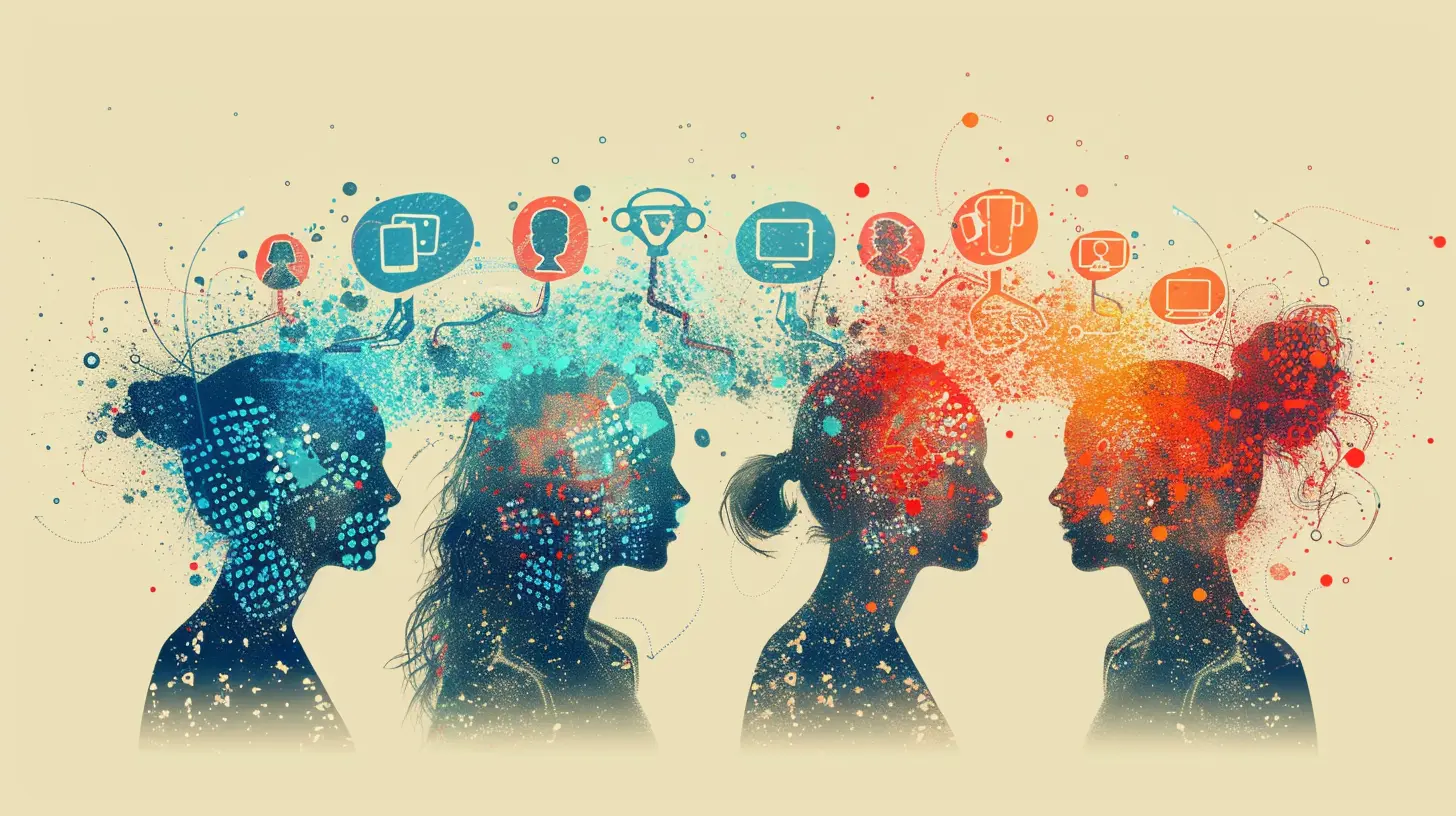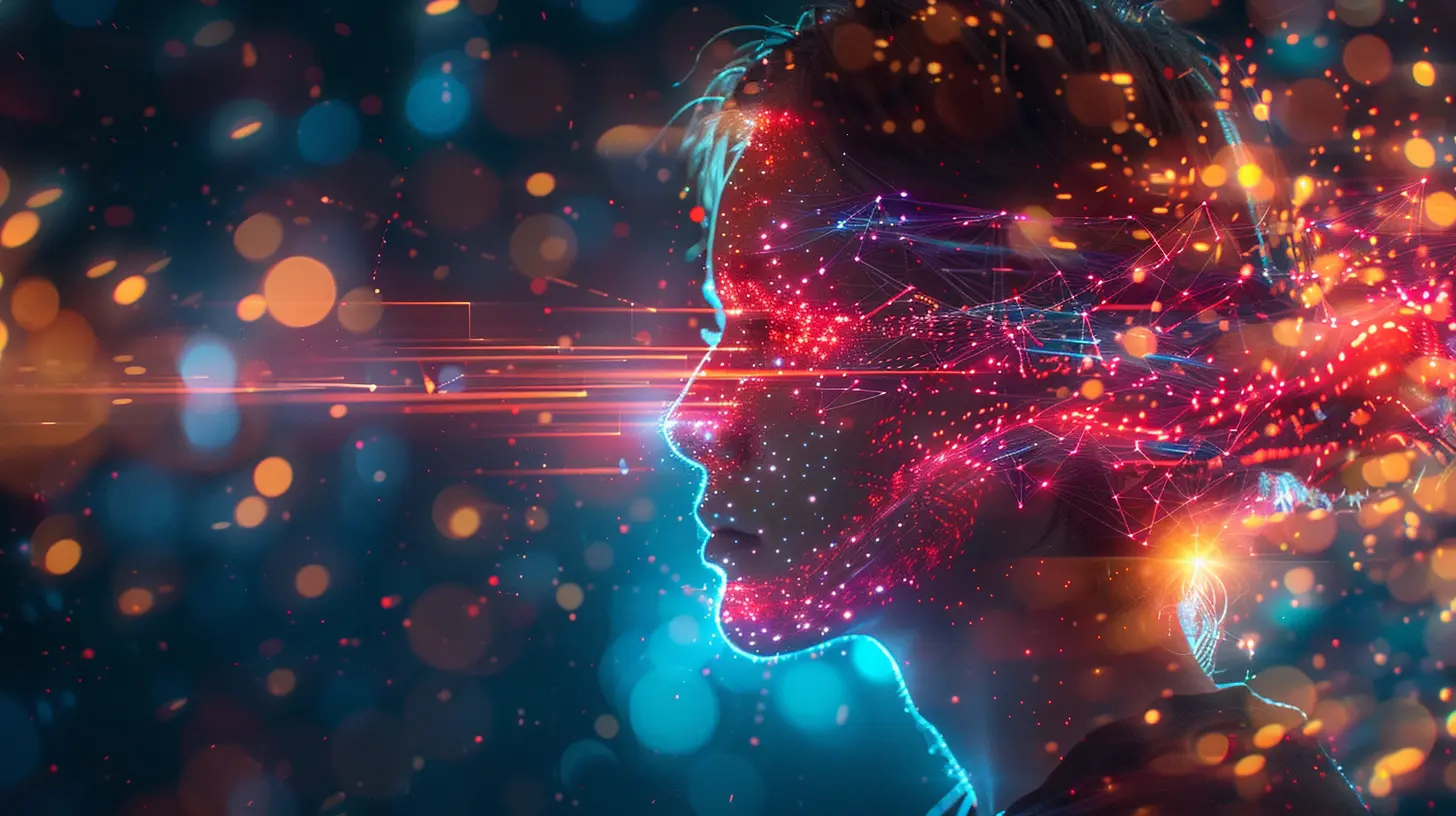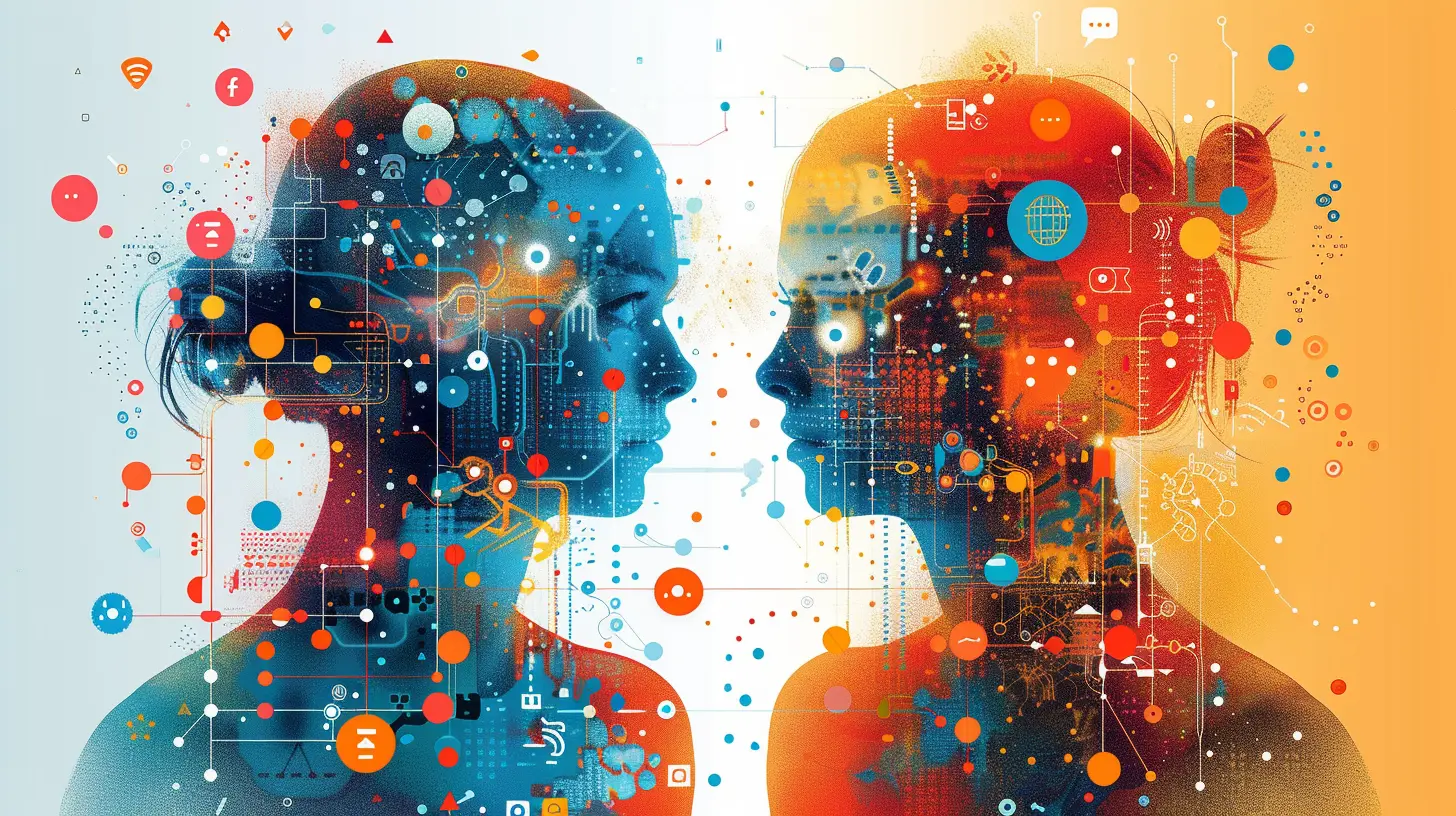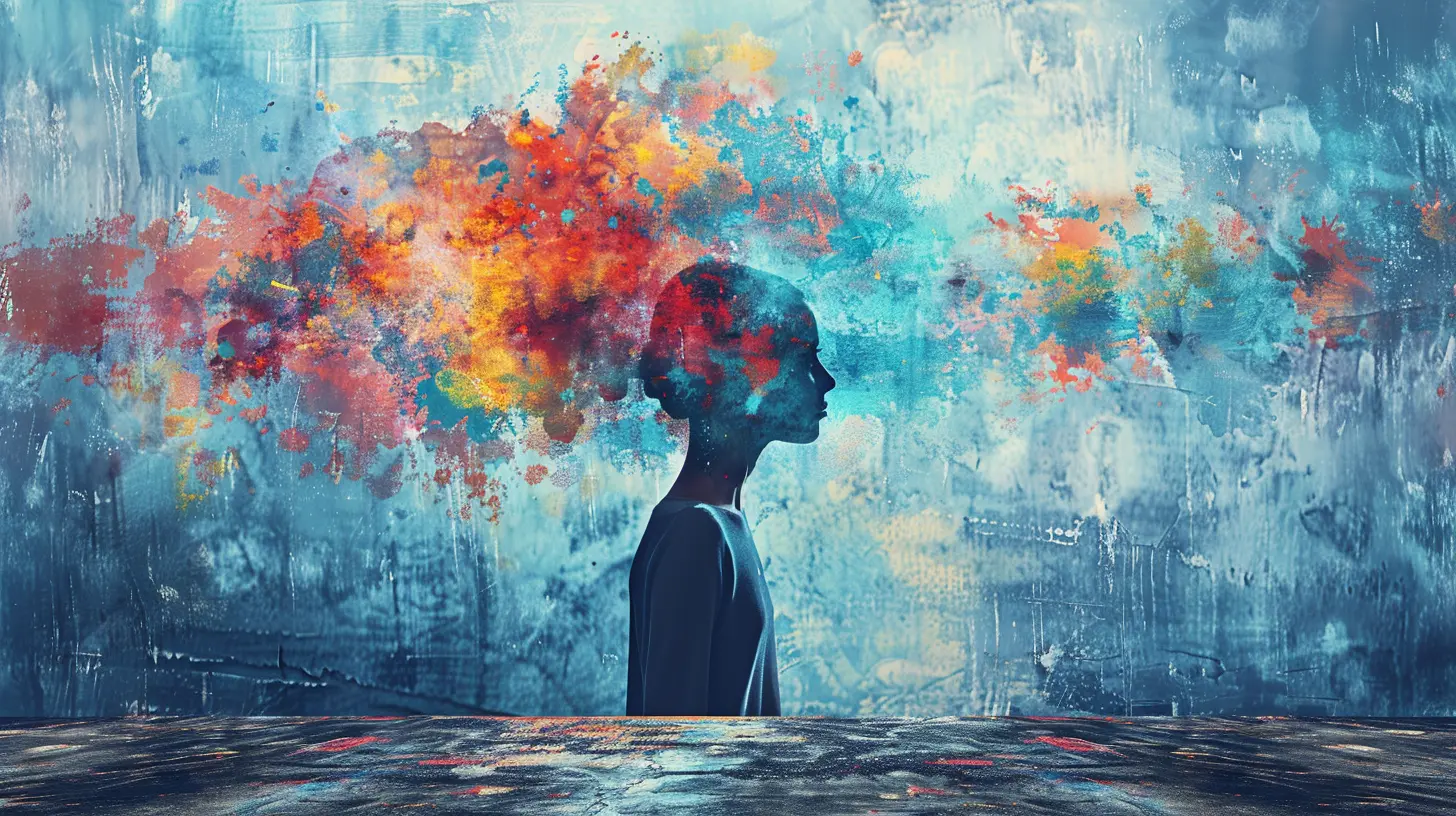The Impact of Social Media on Cognitive Development
25 December 2024
In the digital age, social media has become a cornerstone of modern communication. It's everywhere—Facebook, Instagram, TikTok, Twitter (or is it X now? I can't keep track!). With millions of people, especially young users, scrolling through their feeds daily, it raises an important question: What impact does social media have on our brains, particularly during the crucial stages of cognitive development?
We all know that social media is a double-edged sword. It can connect us with loved ones and provide us with endless entertainment. But at the same time, it can be a source of stress, distraction, and even cognitive overload. So, how does this constant exposure influence the way our brains develop, especially in young people? Let’s dive deep into the fascinating intersection of social media and cognitive development.
What Is Cognitive Development?
Before we get into the nitty-gritty of social media, let’s quickly define cognitive development. In simple terms, cognitive development refers to the mental processes involved in gaining knowledge, reasoning, problem-solving, and decision-making. In other words, it’s how our brains learn to think, understand, and remember things.Psychologists like Jean Piaget have long studied cognitive development, highlighting the various stages that children go through as their brains mature. From infancy through adolescence, our brains are constantly evolving, adapting, and restructuring based on our experiences. And guess what? Social media is becoming one of those experiences.
Now, the real question is, does social media help or hinder this development?
The Upside of Social Media on Cognitive Development
Let’s start with the positive. Believe it or not, social media isn’t all doom and gloom. In fact, used wisely, it can offer several cognitive benefits. Let’s take a closer look.1. Enhanced Communication Skills
Sure, social media may not teach us the art of face-to-face conversation, but it does improve other communication skills. Through platforms like Snapchat, Twitter, and Instagram, young people are constantly reading, writing, and engaging in discussions. While they may not be writing academic essays, they are still learning how to express their thoughts succinctly and effectively—a skill that will serve them well in the future.Plus, social media opens the door to global communication. People can exchange ideas with others from different cultures, offering a diverse range of perspectives that can help develop critical thinking and empathy.
2. Access to Information
Gone are the days when you had to visit a library to do research. Now, thanks to platforms like YouTube, Reddit, and even Twitter, information is just a click away. Social media can serve as an educational tool, providing instant access to tutorials, articles, and academic discussions on just about any topic.For example, if you wanted to learn how the brain works, you could find hundreds of educational videos and research articles on social media platforms. This easy access to knowledge can promote curiosity and encourage self-directed learning, which is essential for cognitive growth.
3. Creativity and Problem-Solving
Ever tried to create the perfect TikTok video or Instagram post? It’s not as easy as it looks. Social media provides a platform for creative expression, forcing users to think critically about how to present their ideas in an engaging way. Whether it’s designing a meme, writing a blog post, or creating video content, young users are constantly employing problem-solving skills.Platforms like Pinterest and Instagram also inspire creativity by showcasing art, photography, and design, which can fuel a young mind’s imagination. This creativity, combined with the ability to solve problems (like how to get more likes or followers), can positively impact cognitive development.
The Downside of Social Media on Cognitive Development
Alright, now that we’ve looked at the positives, it’s time to explore the dark side. While social media has some clear benefits, it can also have significant negative effects on cognitive development. Let’s break it down.1. Attention Span and Focus Issues
Ever found yourself scrolling through Instagram, switching to TikTok, then hopping onto Twitter—all within the span of a few minutes? You’re not alone. Social media has turned many of us into multitaskers, constantly shifting our attention from one thing to another.Unfortunately, this habit can wreak havoc on our attention spans. Studies show that excessive social media use can lead to decreased focus and concentration. Young minds, especially, are vulnerable to this because their brains are still developing.
The constant influx of notifications, likes, and messages can make it harder to focus on more demanding cognitive tasks like reading, studying, or solving complex problems. Over time, this could potentially affect their ability to engage in deep, focused thought—something essential for academic success and cognitive growth.
2. Sleep Disruption
Ever stayed up late, mindlessly scrolling through TikTok, only to realize it’s 2 AM and you have to get up in just a few hours? Yeah, we’ve all been there. But here’s the thing: social media can seriously mess with your sleep patterns, especially if you’re using it right before bed.Research suggests that the blue light emitted by our screens can interfere with our circadian rhythms, making it harder to fall asleep. Poor sleep, in turn, can negatively impact cognitive functions such as memory, learning, and decision-making.
For young people, who need quality sleep for brain development, this can be particularly harmful. Sleep is crucial for consolidating memories and learning new information, so any disruption can hinder cognitive growth.
3. Social Comparison and Mental Health
It’s no secret that social media can create unrealistic standards. Whether it’s influencers flaunting their perfect bodies or friends posting about their seemingly flawless lives, it’s easy to fall into the trap of social comparison.Constantly comparing yourself to others can lead to feelings of inadequacy, anxiety, and depression. And while these are emotional issues, they can also impact cognitive development. When young people are consumed by negative thoughts, it can affect their ability to think clearly, make decisions, and solve problems.
In the long term, poor mental health can interfere with brain development, particularly in areas related to emotional regulation and decision-making.
The Role of Dopamine and Social Media Addiction
We can’t talk about social media and cognitive development without mentioning dopamine. You know that little boost of satisfaction you get when someone likes your post or comments on your picture? That’s dopamine at work—a neurotransmitter that plays a key role in our brain’s reward system.Social media platforms are designed to keep us coming back for more. Each like, share, or comment triggers a dopamine release, making us feel good—so good, in fact, that many people become addicted to the dopamine rush. This constant craving for validation can lead to compulsive social media use, which, as we’ve already discussed, can have negative effects on focus, sleep, and mental health.
And let’s not forget that addiction, whether it’s to social media or anything else, can impact the brain’s ability to regulate impulses, make decisions, and plan for the future—cognitive skills that are crucial for young people.
How to Use Social Media Mindfully
So, does this mean we should all delete our social media accounts and go back to the pre-Instagram days? Not necessarily. The key here is balance and mindful use.1. Set Time Limits
Ever heard the saying, "everything in moderation"? Well, it applies to social media too. Setting time limits on social media use can help prevent cognitive overload. Apps like Instagram and TikTok even have built-in tools to help you monitor your screen time.By limiting your time on these platforms, you can focus on other activities that improve cognitive development, such as reading, critical thinking exercises, and real-world social interactions.
2. Curate Your Feed
Not all social media content is created equal. Instead of mindlessly scrolling through feeds filled with memes and influencer posts, try curating your feed to include educational or inspiring content. Follow accounts that teach you something new, challenge your thinking, or inspire creativity.3. Take Social Media Breaks
Sometimes, the best thing you can do for your brain is to take a break. Whether it’s a day, a week, or even just a few hours, stepping away from social media can give your brain the time it needs to recharge and refocus.Conclusion: A Two-Sided Coin
The impact of social media on cognitive development is a bit of a mixed bag. On one side, it offers incredible opportunities for communication, creativity, and access to information. On the other side, it can lead to attention issues, poor sleep, and mental health struggles.The key takeaway? Social media is neither inherently good nor bad—it all depends on how we use it. For young people especially, mindful use of these platforms is essential to protecting and promoting healthy cognitive development. So next time you’re tempted to scroll through Instagram for hours, maybe ask yourself: Is this helping or hurting my brain?
all images in this post were generated using AI tools
Category:
Cognitive ScienceAuthor:

Janet Conrad
Discussion
rate this article
13 comments
Yvonne Romero
Social media shapes cognition; balance is essential for growth.
February 5, 2025 at 3:28 PM

Janet Conrad
Thank you for your insightful comment! I completely agree—finding a balance in social media use is crucial for healthy cognitive development.
Bennett McLanahan
Essential insights on modern challenges.
February 1, 2025 at 4:15 AM

Janet Conrad
Thank you! I'm glad you found the insights valuable. Social media's impact on cognitive development is indeed a crucial topic.
Thomas Willis
This article really highlights how social media shapes our thinking! It's fascinating to see both the positives and negatives. As a regular user, I’m definitely more aware of my online habits now. Thanks for shedding light on this topic!
January 29, 2025 at 3:52 AM

Janet Conrad
Thank you for your thoughtful comment! I'm glad you found the article insightful and that it resonated with your online habits. It's crucial to stay aware of social media's influence on our thinking.
Taylor Roberts
Social media shapes attention spans and social skills.
January 24, 2025 at 4:06 AM

Janet Conrad
You're right; social media can influence attention spans and social skills, often leading to shorter focus and less face-to-face interaction, which can affect cognitive development.
Dorothy Weber
Understanding is key; empathy fosters growth.
January 21, 2025 at 5:47 PM

Janet Conrad
Absolutely! Empathy enhances our connections and understanding, which are crucial for meaningful interactions, especially in the digital age.
Elle Wolfe
Thank you for this insightful article! It’s crucial to understand how social media shapes cognitive development, especially in young people. I appreciate the balanced perspective you've provided on both the potential benefits and the challenges. Looking forward to more discussions!
January 16, 2025 at 4:42 AM

Janet Conrad
Thank you for your kind words! I'm glad you found the article insightful. I look forward to more discussions on this important topic!
Veda McInerney
Social media undeniably shapes cognitive development—enhancing connectivity but also fostering distractions. It's crucial to harness its potential while mitigating adverse effects on young minds.
January 10, 2025 at 5:43 PM

Janet Conrad
Thank you for your insight! I completely agree that while social media can enhance connectivity, we must be vigilant about its potential distractions, especially for young minds. Balancing these aspects is key to maximizing its benefits.
Mallory McDaniel
Social media: shaping minds or just shaping selfies? Let’s be honest, not all cognitive growth is created equal!
December 30, 2024 at 3:28 PM

Janet Conrad
Social media can enhance cognitive skills through diverse interactions but often promotes superficial engagement, leading to unequal growth in critical thinking. Balancing quality content with social connectivity is key.
Henry McSweeney
Ah, social media and cognitive development: the ultimate brain gym! Who knew scrolling through cat memes and debating pineapple on pizza could boost our mental agility? Just remember, while it trains our thumbs, it might also turn our attention spans into goldfish-levels. Let's hope that brain gets a workout too!" 🧠💪🐟
December 28, 2024 at 4:44 AM

Janet Conrad
Great point! While social media can stimulate certain cognitive skills, it's essential to balance it with activities that enhance deeper focus and critical thinking. 🧠✨
Thane McKenzie
This article insightfully explores the dual-edged influence of social media on cognitive development. While it offers opportunities for enhanced communication and information access, the potential for reduced attention spans and critical thinking raises concerns. A balanced approach is essential to harness benefits while mitigating adverse effects on mental processing.
December 26, 2024 at 3:43 PM

Janet Conrad
Thank you for your thoughtful comment! I agree that balancing the benefits and drawbacks of social media is crucial for promoting healthy cognitive development.
Courtney Pope
Embrace connection, inspire cognitive growth!
December 26, 2024 at 5:15 AM

Janet Conrad
Thank you! Embracing connections through social media can indeed foster cognitive growth by facilitating diverse interactions and ideas.
Buzz Montgomery
Embrace the positive potential of social media to inspire growth and enhance your cognitive journey!
December 25, 2024 at 4:34 PM

Janet Conrad
Thank you for your insightful comment! Embracing the positive aspects of social media can indeed foster cognitive growth and enrich our learning experiences.
Jennifer Carr
What a thought-provoking read! This article beautifully highlights the intricate relationship between social media and cognitive development. It's fascinating to see how our digital interactions shape our thinking and learning processes. Thank you for shedding light on such an important topic that affects so many of us today!
December 25, 2024 at 4:57 AM

Janet Conrad
Thank you for your thoughtful response! I'm glad you found the article insightful and relevant to our modern experiences with social media.
MORE POSTS

The Long-Term Impact of PTSD on Cognitive Functioning

The Science of Trauma and Its Effects on the Brain

Exploring the Depths of Existential Therapy for Meaning and Purpose

The Role of Oxytocin in Trust and Social Bonding

How to Create a Trauma-Informed Space for PTSD Recovery

How PTSD Erodes Self-Esteem and Ways to Rebuild It

The Importance of Boundaries in Therapy

The Role of Personality in Shaping Political Views

The Power of Gratitude in Developing Mental Toughness